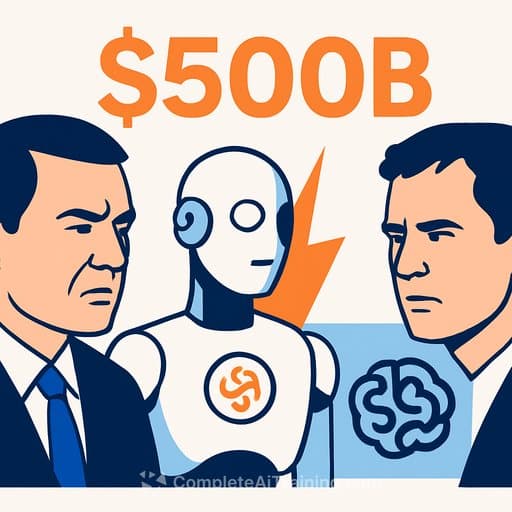Trump AI Czar David Sacks Accuses Anthropic of 'Woke AI' Regulatory Capture, Citing $910,000 Lobbying Spend

Prominent venture capitalist and Trump administration AI advisor David Sacks has publicly accused artificial intelligence company Anthropic of using its stated focus on AI safety research as a "misdirection" for a political agenda. Sacks, who serves as President Donald Trump's AI and crypto czar, claims the company is actively working to implement "Woke AI" and other regulations, particularly through "Blue states like California." This assertion comes amidst a growing ideological divide over the future of AI governance, pitting rapid innovation against calls for stricter oversight.
"The real issue is not research but rather Anthropic’s agenda to backdoor Woke AI and other AI regulations through Blue states like California," Sacks stated in a recent social media post. He further alleged that Anthropic hired the "Biden AI team," which he linked to "Biden’s Woke AI executive order and the Biden Diffusion Rule." Sacks contends that after President Trump rescinded these regulations, Anthropic shifted its efforts to the state level, pursuing what he termed a "sophisticated regulatory capture strategy based on fear-mongering."
Anthropic, known for its mission to build safer AI and develop models like Claude, has indeed been an active participant in policy discussions, significantly increasing its lobbying expenditures to $910,000 in the second quarter of 2025. The company notably opposed a Trump-backed federal provision for a 10-year moratorium on state-level AI regulations, arguing it was "too blunt." Instead, Anthropic publicly endorsed California's SB 53, a bill requiring transparency and safety disclosures from AI companies, which they believe is crucial for frontier AI safety.
The "Biden AI executive order" referenced by Sacks was officially titled "Advancing United States Leadership in Artificial Intelligence Infrastructure," issued in January 2025, focusing on national security, economic competitiveness, and clean energy, without using the term "Woke AI." The "Biden Diffusion Rule" refers to a "Framework for Artificial Intelligence Diffusion," an export control policy for advanced AI chips, which the Trump administration later rescinded, citing concerns about stifling innovation and undermining diplomatic relations. This highlights the starkly different approaches to AI regulation between the two administrations.
Sacks further characterized Anthropic as a "Resistance organization" opposing President Trump’s "One Big Beautiful Bill" and export policy, pointing to the company's hiring of senior Biden-era officials for its government relations team. He also drew connections between Anthropic and "biggest Democrat mega-donors in tech — namely you, Reed Hastings and Dustin Moskovitz," suggesting their association with the company is "likely not a coincidence." Anthropic CEO Dario Amodei has previously defended the company's approach, emphasizing "policy over politics" in managing AI's societal impacts.
This public exchange underscores the intense political and ideological battle over how artificial intelligence should be developed and regulated in the United States. The debate pits those prioritizing unhindered innovation, like Sacks, against those advocating for robust safety and ethical guardrails, a position Anthropic champions. The significant lobbying efforts and contrasting policy endorsements from leading AI firms indicate a pivotal moment in shaping the future trajectory of AI governance.